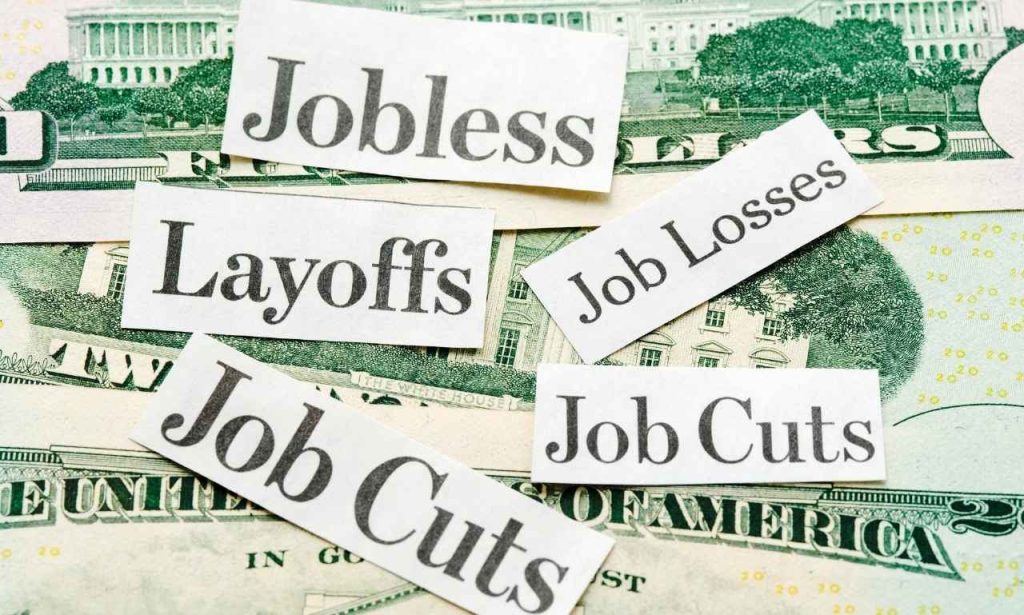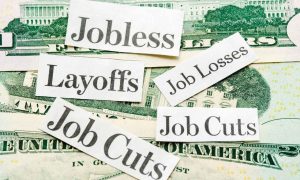Nobody wants to think about losing their job. In 2008, I watched my entire department get wiped out during the financial crisis. The Canadian job market can be brutal sometimes. Just look at what happened in the tech sector last year—companies like Shopify and Hootsuite cut hundreds of positions overnight. Most people never see it coming. On Thursday afternoon, you’re planning projects for next quarter. Friday morning, you’re carrying your stuff out in a cardboard box.
I’m not telling you this to freak you out. But having a game plan before trouble hits can save you months of financial stress. This article will walk you through what to do if you’re worried about job security. We’ll cover your legal rights, money moves to make now, and how to keep your head on straight through the whole mess.
Know Your Rights

Canadian employment law is actually pretty worker-friendly, but most people have no clue what they’re entitled to, and this ignorance costs them thousands.
When I was consulting for a manufacturing company in Ontario, one manager told me they routinely offered the bare minimum notice required by law. Most employees just took it without question. Under common law, many were entitled to way more—sometimes 3-4 times what they were offered!
Different provinces have different rules. Employment status matters too—permanent employees have different rights than contractors or probationary workers. Your age, position, and how long you’ve worked there all affect what you’re owed if you’re laid off.
Is it Lawful for My Employer to lay me off temporarily?
Unless your employment contract allows explicitly for temporary layoffs, your employer technically can’t just send you home for a few weeks without pay. Many companies do it anyway, counting on workers not knowing any better.
In Ontario, employers can temporarily lay off workers for up to 13 weeks in a 20-week period. In BC, it’s 13 weeks in any 20 weeks. Alberta allows eight weeks in a 16-week period. But if your contract doesn’t mention layoffs? You might have grounds to claim constructive dismissal and demand severance instead.
This isn’t theoretical. A client of mine ran a small marketing agency and tried to lay off three staff members during a slow period. Their contracts had no layoff provisions. Two employees knew their rights and pushed back. Each walked away with several months of severance pay instead.
Review Your Employment Contract
Pull out your employment contract right now. Seriously. When was the last time you read it? Most people sign these things and never look at them again.
Pay special attention to sections about termination, notice periods, and severance calculations. Some contracts try to limit severance to the provincial minimum standards. Others include temporary layoff clauses that you never notice.
If your contract seems confusing or you don’t have one, that usually works in your favor. Courts tend to side with employees in these situations. Keep emails, performance reviews, and any changes to your role or compensation. These can strengthen your position if things go sideways.
How Much Notice Does an Employer Need to Give for Permanent Layoffs?
This is where things get interesting. Provincial employment standards set minimum notice periods. In Ontario, it’s roughly one week per year of service, up to eight weeks. But many don’t realize that standard law entitlements are often much more generous.
I’ve seen executives receive 24 months of severance after long service. Age, seniority, and specialized skills can significantly increase your debts. Companies count on you not knowing this.
Companies usually have to give more notice or pay for mass layoffs affecting 50+ employees. Always get legal advice before accepting any severance offer. That quick consultation could mean a difference of tens of thousands of dollars in your pocket.
Apply for Employment Insurance

Don’t wait on this. Seriously. Apply for EI the minute you lose your job, even if you’re getting severance. There’s often a one-week waiting period before benefits kick in anyway.
The introductory rate for EI is 55% of your average insurable earnings, up to a yearly maximum that changes annually. Most people get between $350 and $650 weekly for up to 45 weeks, depending on your region’s unemployment rate and how long you’ve worked.
You’ll need your employer’s Record of Employment. If they’re dragging their feet on providing it (which happens constantly), apply anyway and explain the situation. It’s better to get in the system now than wait.
Look into Provincial Social Assistance Programs
EI is just the beginning. Each province has additional support programs for which you might qualify. Ontario Works, BC Income Assistance, and Alberta Works have different names but offer similar support.
Many don’t realize that some programs offer more than just income support. Housing subsidies, prescription coverage, and training allowances could all be on the table. Local employment centers often have case workers who can walk you through what’s available in your area.
Don’t let pride stop you from accessing these programs. That’s literally why they exist—to help during challenging transitions.
Employment Insurance and Social Assistance
Here’s where things get a bit complicated. Usually, you have to exhaust your EI before qualifying for provincial assistance. Some provinces allow partial social assistance if your EI benefits are very low.
Unlike EI, most social assistance programs are means-tested. They’ll determine eligibility for your household income, savings, and assets. That nice car in your driveway? You should sell it before qualifying.
Reporting requirements are typically much stricter than with EI. You must document your job search efforts and report any income changes immediately. Keep meticulous records of everything.
Investigate Your Insurance Coverage
Check your wallet—some credit cards might have payment protection insurance covering minimum payments if you lose your job.
Your mortgage might have similar coverage. Some health benefits packages include income protection for short periods of unemployment, and critical illness policies sometimes cover job loss due to health issues.
A few years back, a friend discovered his car loan included unemployment insurance he’d forgotten about. It covered his payments for six months while he was job hunting. These little safety nets can make a huge difference in preserving your credit rating during tough times.
Follow Up on Employer-Sponsored Retirement Plans
When you lose your job, your pension and retirement savings need immediate attention. For company pension plans, you typically have options: leave it with your former employer, transfer to a new employer’s plan, or move it to a locked-in retirement account.
For group RRSPs, similar choices exist. The worst thing you can do is cash them out early—the tax hit is brutal. I’ve seen people lose nearly half their savings to taxes and penalties.
One client faced a 16-month unemployment stretch after getting laid off from a senior role. He was tempted to tap his retirement savings but negotiated a HELOC against his home at a much lower interest rate. Five years later, his retirement account had grown by 40% instead of being depleted.
Set SMARTER Goals
When you’re unemployed, it’s easy to feel adrift. Setting structured goals gives you direction when your regular routine disappears.
Make these goals Specific, Measurable, Achievable, Relevant, Time-bound, Evaluated, and reviewed (SMARTER). Instead of “find a job,” try “apply to 10 positions in my field this week” or “reach out to five industry contacts by Friday.”
Break larger goals into daily tasks. Track your progress visually—there’s something satisfying about crossing items off a list. Adjust as you learn more about your job market. Celebrate small wins to maintain motivation through the inevitable rejections.
Tips For Finding Work After Long-Term Unemployment
Long-term unemployment requires different strategies. The job market looks at six-month gaps differently than two-month breaks.
I recommend focusing on skills development during this period. Take online courses relevant to your field. Consider contract or project work to keep your resume active—volunteer in positions that showcase your professional abilities.
Be strategic about explaining employment gaps in interviews. Practice a brief, confident explanation of what you’ve learned or accomplished during the gap. Never apologize or seem defensive about it.
I once worked with a marketing director who was unemployed for 11 months. Instead of hiding it, she highlighted the digital marketing certification she’d completed and the non-profit website she’d built during that time. She landed a better role than the one she’d lost.
How to Manage Your Finances During Long-Term Unemployment
Preparation delivers its most significant rewards at this point. Develop a fundamental budget plan that eliminates all unnecessary expenses immediately.
Strategically prioritize debt payments. The first financial priority should be addressing high-interest credit cards. Reach out to your creditors ahead of time instead of letting them contact you first. Businesses maintain hardship assistance, which they hide from the public but will grant access through direct inquiries.
Retirement money should remain untouched unless there are no other financial options left. Penalties, taxes, and reduced growth potential can result in a financial disaster. Consider selling non-essential assets instead.
The largest budget expense, housing, requires innovative solutions for cost reduction. Your financial duration can be substantially lengthened through short-term downsizing of your living space and by renting out your rooms or making house-sitting arrangements.
Getting Back on Your Feet When the Job Market Is Tight
Sometimes, bad luck strikes during industry downturns or recessions. When competition is fierce, you need to get creative.
Consider adjacent industries where your skills can be transferred. Think of smaller companies, which often have less formal hiring processes and more flexibility. Explore freelancing or consulting to showcase your expertise directly.
Networking becomes even more crucial in tight markets. In my experience, roughly 70% of good jobs are filled through connections rather than public postings. Reach out to former colleagues, attend industry events, and participate in professional groups online.
Tips for Dealing with Job Loss
The emotional impact of job loss hits even the most financially prepared people. After all, many of us identify with our work.
Maintain a structured daily routine despite having no office to go to. Get dressed, set regular working hours for your job search, and create a dedicated workspace. Structure combats the depression that often accompanies unemployment.
Stay connected with colleagues and friends. Isolation only amplifies negative feelings. Schedule regular coffee meetings, phone calls, or virtual catchups. These connections often lead to job opportunities down the line.
Allow Yourself to Grieve

Job loss triggers a legitimate grief response for most people. Your emotional reaction is normal and valid.
Allow yourself to feel angry, sad, or anxious—but set boundaries around these feelings. Designate a specific “worry time” instead of letting anxiety consume your entire day. Physical activity helps process these emotions in a healthy way.
I remember feeling completely blindsided when my division was eliminated years ago. For two weeks, I cycled between anger and self-doubt. Acknowledging these feelings instead of suppressing them helped me move through them faster.
Accept the Reality of the Situation
Acceptance doesn’t mean giving up—it means seeing things clearly so you can respond effectively.
Take an honest inventory of your financial situation. Calculate how long your savings and severance will last at different spending levels. This clarity prevents panic decisions that could make things worse.
Have frank conversations with family members about necessary lifestyle adjustments. Getting everyone on the same page early prevents conflicts later when financial stress peaks.
Take Care of Yourself
The requirement for self-care increases during periods of unemployment rather than decreasing.
Maintain regular sleep schedules. Eat nutritiously while being budget-conscious. A daily exercise routine is possible through free walking or running activities outdoors. You should develop stress management skills through breathing deeply while you meditate.
It is essential to abstain from alcohol and substance use when dealing with negative emotions. These counterproductive activities waste money that you need to preserve for future expenses.
Exercises to Help You Cope with Job Loss
Several targeted practices exist to boost emotional strength when facing such difficult circumstances.
The practice of gratitude journaling involves writing down three reasons why you are thankful even when your circumstances remain unfavorable. Visualize the situation during the job interview to develop a confident attitude. You should also learn progressive muscle relaxation to handle physical stress symptoms.
When negative thoughts occur, you should actively work on reframing them through conscious mental restructuring. Finding suitable employment requires time because each interview experience provides essential learning opportunities.
Reach Out for Support
Don’t isolate yourself during unemployment. Built support structures play a decisive role when recovering from challenging times.
The government employment centers provide professional support through counseling and job search assistance. The professional connections offered by associations of your industry also include networking activities and skill development resources.
When you reach out to your network, your requests for help need to be detailed. A direct action request, such as introducing you to their Company X contact, demonstrates more effectiveness than general open-ended petitions. I would appreciate it if you could check over my resume.
Conclusion
Your life will not collapse due to job loss in Canada. The right preparation, followed by a proper response, turns this transition into an achievable shift rather than a full-scale crisis.
Your knowledge of legal rights establishes power throughout the layoff process. Financial readiness allows you to make deliberate decisions through the space it provides. Emotional resilience techniques assist people in keeping their outlook under control during moments of extreme stress.
The period of unemployment exists only temporarily. The skills you learn during hard times will assist you professionally. These include becoming flexible, controlling your finances, and controlling your emotions.
Taking proactive measures at this moment will give you the confidence to navigate through unemployment and eventually become professionally stronger than before.
Also Read: 10 Creative Jobs for Introverts
FAQs
Apply immediately—don’t wait. The application process takes time, and there’s usually a one-week waiting period before benefits start.
A significant reduction in hours might constitute constructive dismissal unless your contract specifically allows for it. If this happens, get legal advice.
Never accept the first offer without reviewing it. Consult an employment lawyer—many offer free initial consultations and work on a contingency basis.
Check if your benefits include conversion options or consider applying for private coverage. Some provincial programs cover prescriptions based on income.





